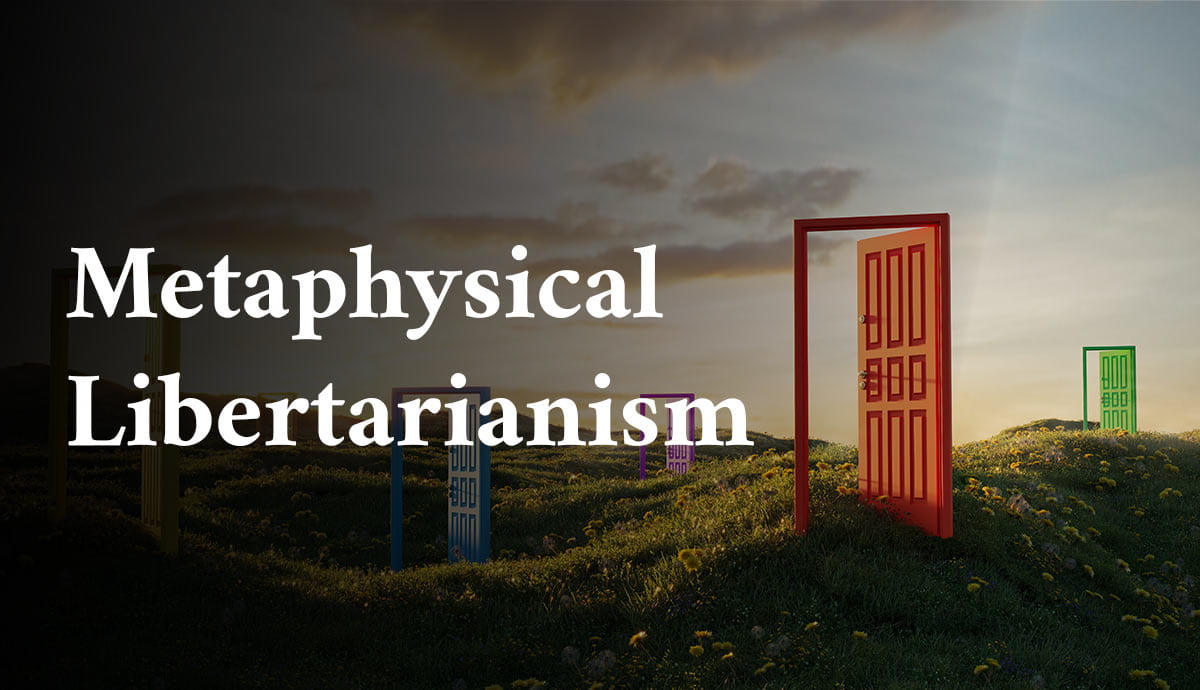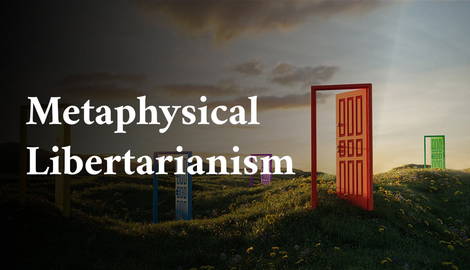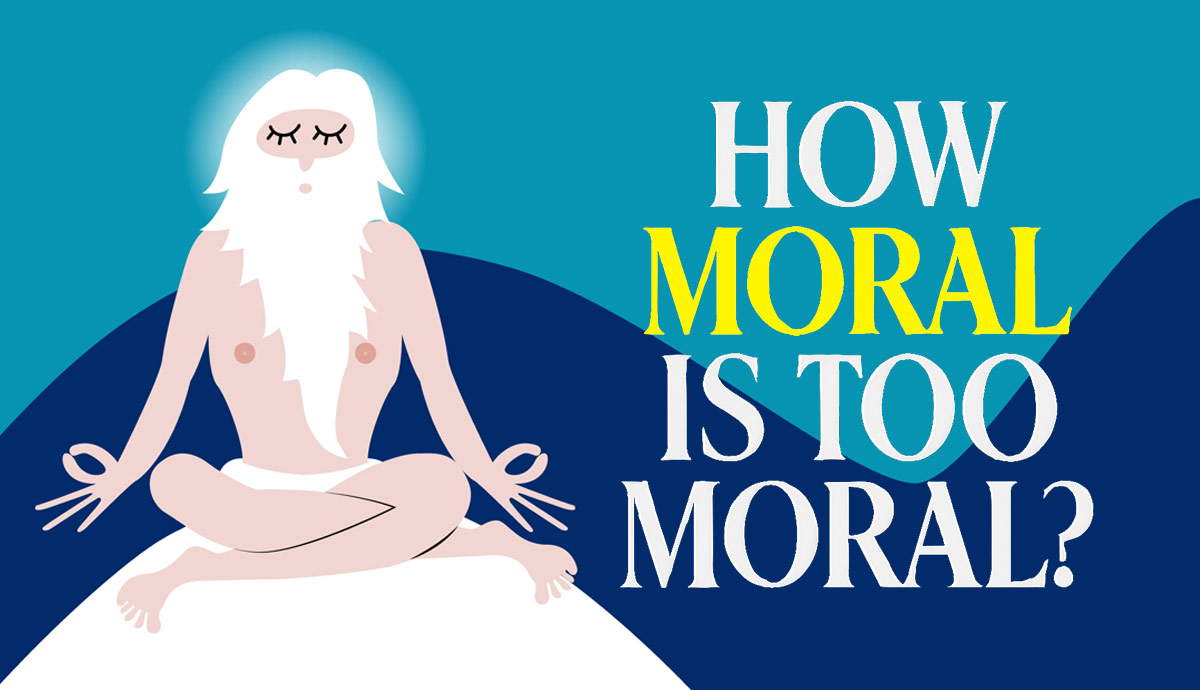
Metaphysical libertarianism is an interesting aspect of the free will conversation. It states that our actions are not predetermined. Imagine a scenario where everything you do is truly because you chose to do it. In this sense, you are completely in control of your own destiny. But how does this idea stack up against determinism? We’ll take a look at what metaphysical libertarianism is all about, as well as its main ideas and some criticisms. Let’s explore an insight into what it means if we live in a world with true freedom.
The Origins of Metaphysical Libertarianism

Metaphysical libertarianism has a long history, beginning in ancient philosophy. The reflections of early philosophers such as Aristotle and Epicurus led to the development of this concept.
Aristotle’s ideas about human agency and ethics were especially important. He suggested that individuals can shape their own futures—a notion that has since become central to the free will debate.
Building on Aristotle, Epicurus went one step further. He argued that freedom was necessary for happiness (which he defined as tranquility). Although there are laws governing the natural world, Epicurus said, some events occur randomly. And so our actions aren’t always predestined by any chain of causation.
Fast-forward to the Enlightenment period, when the discussion around free will really took off, thanks to the intellectual buzz of the time. One key thinker, Immanuel Kant, said you couldn’t have moral responsibility unless you had free will, going against deterministic ideas that our actions are just the results of things that happened earlier.
Kant’s thoughts caused a stir. They challenged the deterministic way of thinking that started taking root following scientific progress.
In response directly to these deterministic theories, metaphysical libertarianism emerged. It says freedom’s true defender is if humans aren’t simply puppets controlled by fate or natural laws. Rather, we are independent beings who can make real choices.
This philosophy became very important for those who think genuine free will matters when it comes to personal life direction and right and wrong (morality).
Key Concepts and Principles of Metaphysical Libertarianism

Metaphysical libertarianism is centered around the idea of free will. It strongly believes that individuals can make choices that are not influenced by predetermined factors.
Deterministic philosophies state that all actions come from previous events or natural laws. But metaphysical libertarianism says they do not hold us down. Instead, advocates for this branch of thought claim that we, as conscious agents, are the true source of what we do.
This belief in free will is fundamental to metaphysical libertarianism. It flatly rejects determinism and suggests that while the universe may work in certain ways, humans can rise above those ways through their own choices.
This is where the idea of agent causation becomes important. While event causation says that things have to happen because of other things that happened before them, agent causation says individuals can start actions without those actions just being the result of earlier events.
If we really can choose what we do, then we are also responsible for the moral consequences of those choices. This belief in free will means strongly believing in moral responsibility, too.
If concepts like praise or blame only make sense when applied to someone who freely chooses their behavior, then ideas about right vs. wrong need both free will and its resulting consequences (like being held accountable) to retain any meaning at all.
Metaphysical libertarianism suggests that ethics requires freedom as much as metaphysics does. It’s not enough simply having the ability—itself an important topic—to choose. Society also needs people to make choices freely for there to be fairness or answerability.
Metaphysical Libertarianism vs. Determinism

The question of whether we are truly free or whether our lives are determined is at the heart of a profound philosophical debate: metaphysical libertarianism versus determinism.
Determinism holds that every event—including human actions—is the necessary result of prior causes. According to this view, which sees the universe as functioning like a perfectly calibrated machine, every choice or movement is simply part of an ongoing series of events prompted by natural laws. In other words, there can be no real free will.
Metaphysical libertarianism strongly disagrees with this belief and claims humans are not just parts of a deterministic machine. It says we can really choose for ourselves what to do without being caused by something else, so we don’t need to have an endless chain of background causes stretching back forever.
According to libertarianism, people are more than their circumstances. They can create new things—they have free will.
The disagreement between these two ways of thinking is fierce. Determinists say science backs up their view. They point out that many things in nature can be predicted very well, and people’s behavior often isn’t far behind.
Critics of determinism, however, say this idea would make it impossible for us ever to be held morally responsible for our actions. If everything we did was already going to happen anyway, how could blameworthiness or praiseworthiness attach itself to anybody for anything?
The Role of Agent Causation in Metaphysical Libertarianism

Agent causation is the foundation of metaphysical libertarianism, distinguishing it from other perspectives on free will. At the same time, event causation suggests that events necessarily lead to other events—as in a row of falling dominoes—agent causation holds that individuals are responsible for starting things.
This means that rather than being carried along by currents established by prior events alone, agents can start fresh and do something new, meaning they have genuine options.
In metaphysical libertarianism, the agent isn’t just one more link in a causal chain. They are the source of their decisions and actions. This elevates them from merely participating in a series of predetermined happenings to making things up as they go along.
The idea is that when someone makes a choice, it isn’t simply because everything leading up to that point scripted it like this. Instead, they’re actively involved in scripting what happens next—and aren’t bound by determinism while doing so.
Here’s an instance to illustrate the distinction: whether or not someone helps a stranger in need. From a deterministic perspective, everything about that person—past experiences, upbringing, and circumstances surrounding them—would all culminate in that decision.
But if we think about agent causation through the lens of metaphysical libertarianism, it suggests that one could make a genuinely free choice from those things.
Rather than simply being shaped by factors leading up to it, one might actually be the ultimate originator of the action in question—deciding whether or not to help—based upon their own volition.
This ability to potentially act independently from what has happened up until now makes agent causation so important when we consider the philosophy behind free will.
Criticisms and Challenges to Metaphysical Libertarianism

While metaphysical libertarianism strongly defends free will, it is not without its critics. One major objection is the issue of randomness and indeterminism.
If previous causes do not bring about our actions—if they’re not determined in this way—then might they be random instead? And if so, does this mean we have any kind of free will at all? Or can our behavior even count as rational?
This raises the worry that metaphysical libertarianism may substitute chaos for determinism, leaving us without any meaningful sort of control—precisely what we thought we had when we appealed to free will.
Critics also point out how difficult it is to reconcile free will with the scientific understanding of how the universe works. Many scientific theories seem to suggest that everything that happens can be explained by cause and effect. So, can there really be free will in a world governed by these deterministic laws?
Metaphysical libertarians respond to these objections by saying that free will doesn’t mean things happen at random. They say there’s agent causation, where people can start new types of events—something midway between determinism and randomness.
They also argue that we don’t know whether scientific determinism applies outside physics. Perhaps human consciousness works differently from anything else we know about—so there might still be a way for us to make decisions freely.
Metaphysical Libertarianism in Contemporary Philosophy

As the philosophy of mind has evolved, metaphysical libertarianism remains a topic of debate and is not being swamped by determinist or compatibilist thinking.
Important thinkers such as Robert Kane and Timothy O’Connor have made an impact by defending the position that human beings really do have free will—we are not just cogs in a deterministic chain. Their work means that the issue continues to be discussed energetically: Does every action we perform have its cause laid down for it in advance?
Metaphysical libertarianism impacts beyond the dispute about free will; it also influences ethics, metaphysics, and the philosophy of mind. In ethics, it provides a foundation for the concept of moral responsibility.
If individuals are to be truly responsible for their actions, they must have the freedom to choose otherwise. Metaphysics raises questions about reality and human agency, while philosophy of mind deals with consciousness and personal identity.
The practical consequences may be dramatic. Belief in free will affects how we perceive human behavior, which in turn influences laws, social mores, and even personal relationships.
In a world that prizes autonomy and individual accountability, what one thinks about metaphysical libertarianism also has political implications. It supports the belief that people’s choices can make a difference in their own lives. Thus, it helps foster a society based on freedom and responsibility.
So, What Is Metaphysical Libertarianism?

Metaphysical libertarianism argues for true free will, stating that previous events or scientific laws do not decide our choices. We are the cause of our actions without being influenced by anything else—which means we are responsible for what we do.
Although there are arguments against metaphysical libertarianism, mainly from a scientific determinist point of view, it is still a strong belief system when it comes to personal freedom and having to answer morally for your actions.
In other words, don’t think of yourself as just a character in a book whose ending has already been written. Think of yourself as the author—because only you can decide how your story goes.










